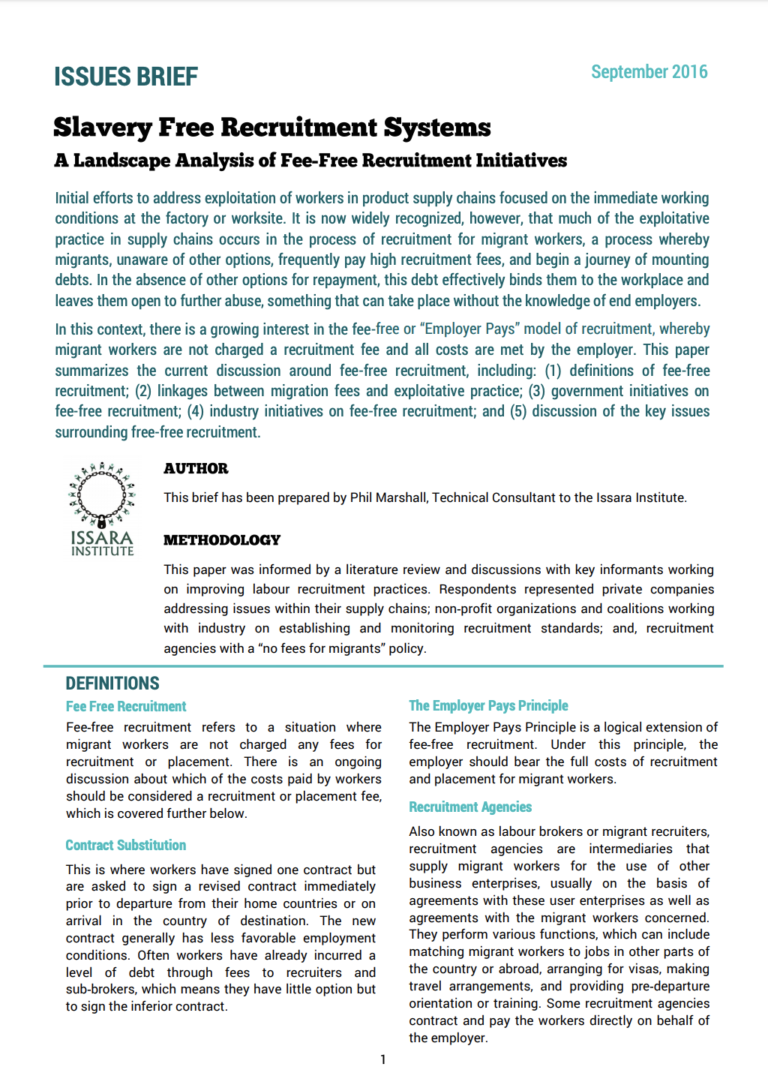Dhaka Principles for Migration with Dignity
The Dhaka Principles for Migration with Dignity are a set of human rights based principles to enhance respect for the rights of migrant workers from the moment of recruitment, during overseas employment and through to further employment or safe return to...

